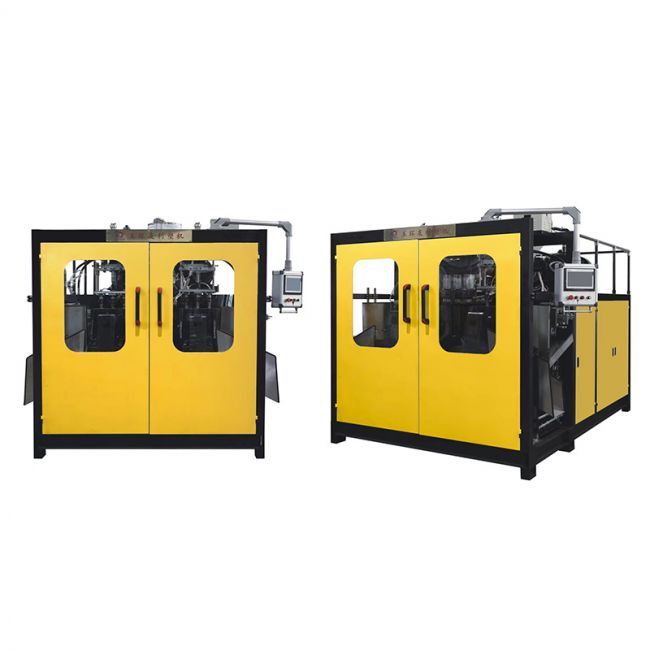Extrusion Blow Molding Machine: Overview and Function
An extrusion blow molding machine is a specialized piece of equipment used in the manufacturing process of plastic hollow objects, such as bottles, containers, and tanks. This technology employs the principles of extrusion and blow molding to create a wide range of plastic products with varying shapes, sizes, and designs. This guide provides a comprehensive overview of extrusion blow molding machines, their working principles, and their applications in the plastic manufacturing industry.
Working Principles of Extrusion Blow Molding
The extrusion blow molding process involves several key steps: Material Preparation: Plastic resin pellets or granules are loaded into the machine's hopper. These materials are typically thermoplastics, which can be melted and reshaped multiple times.
Extrusion: The plastic material is fed into an extruder, where it undergoes heating and melting. The extruder consists of a screw mechanism that forces the molten plastic through a die head, creating a parison—a hollow tube of plastic.
Parison Formation: The parison is shaped according to the mold's design as it emerges from the die head. The shape of the parison determines the final shape of the hollow object.
Mold Closure: The mold, which consists of two halves, closes around the parison. The mold is designed to create the desired shape of the finished product.
Blow Molding: Compressed air is introduced into the parison, inflating it to match the shape of the mold. The air pressure forces the plastic against the mold's inner surfaces, creating the final hollow object.
Cooling and Solidification: After the blow molding process, the plastic is allowed to cool and solidify within the mold. This ensures that the product retains its shape and rigidity.
Mold Opening and Ejection: Once the plastic has cooled sufficiently, the mold opens, and the finished product is ejected from the machine.
YL-5L Plastic Extrusion Automatic Blow Molding Machine
Types of Extrusion Blow Molding Machines
There are several variations of extrusion blow molding machines, each suited to different production requirements: Continuous Extrusion Blow Molding: In this method, a constant stream of parison is extruded and cut into individual lengths, which are then molded and blown to form products.
Intermittent Extrusion Blow Molding: This method involves extruding a parison for each individual product. The parison is cut, and the mold closes and opens for each cycle.
Accumulator Head Blow Molding: This technique is used for large products or those requiring complex shapes. An accumulator stores a volume of molten plastic, which is then pushed into the mold.
Injection Blow Molding: In this process, the parison is injection molded in a separate machine and then transferred to the blow molding machine for inflation and shaping.
Applications of Extrusion Blow Molding
Extrusion blow molding machines are widely used across various industries for producing plastic hollow objects, including: Bottles and containers for beverages, cosmetics, household products, and personal care items. Automotive components, such as fuel tanks, air ducts, and reservoirs. Industrial containers, drums, and tanks for chemicals, lubricants, and fluids. Medical equipment and devices, such as syringes, IV bags, and medical tubing. Toys, sports equipment, and recreational items.
Advantages of Extrusion Blow Molding Machines
Cost-Efficiency: Extrusion blow molding allows for the production of complex shapes at a relatively low cost per unit.
Design Flexibility: The process can create a wide range of shapes, sizes, and designs to meet specific product requirements.
High Output: Extrusion blow molding machines can produce a large number of products in a relatively short time.
Material Versatility: A variety of thermoplastics can be used, offering options for different properties and characteristics.
Reduced Waste: The process generates minimal waste compared to other manufacturing methods.
Conclusion
Extrusion blow molding machines are integral to the plastic manufacturing industry, enabling the efficient and cost-effective production of a diverse range of plastic hollow objects. By combining extrusion and blow molding techniques, these machines offer design flexibility, high output rates, and the ability to produce products for various applications. From everyday consumer products to industrial components, extrusion blow molding machines play a significant role in shaping the plastic products we encounter in our daily lives.
602
0
0



Comments
All Comments (0)